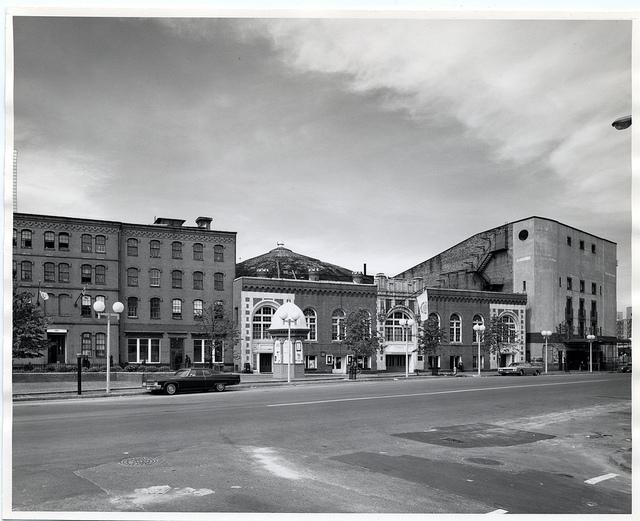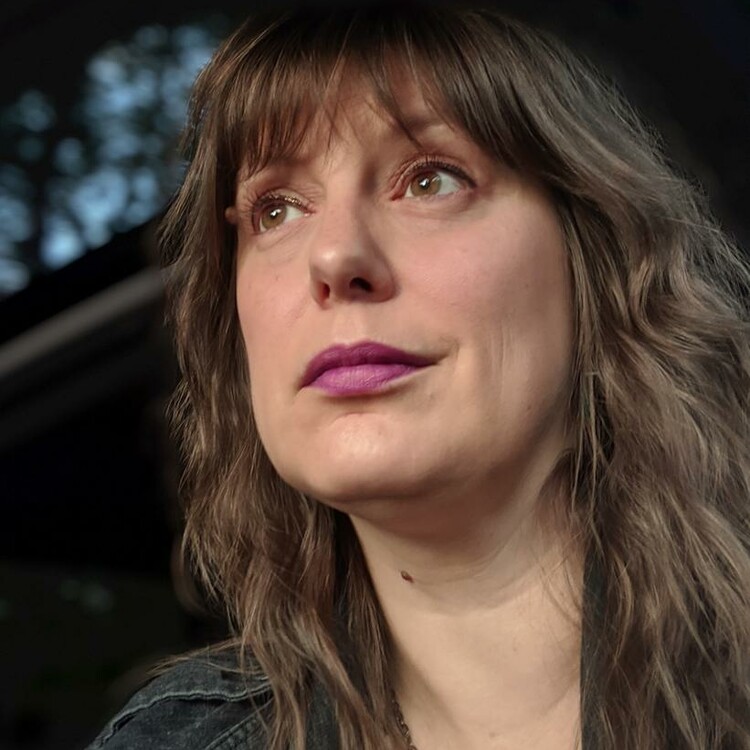They Carry the Flame
An Interview with Barry Andelman and Larry Stark
In the spring of 2008 I finished graduate school at Boston University and had just gotten hired at New Repertory Theatre, right outside of Boston. Not really knowing anything about theatre in the area, I did my best to immerse myself in the local scene as quickly as possible. One of the first things I discovered was a pair of gentlemen that seemed to be at every show I was at. In the midst of all my theatre going, I had stumbled onto another facet of our community, Barry Andelman and Larry Stark: longtime friends, avid theatre lovers, sometimes critics, and huge advocates for our community.
They met at the theatre several decades ago when Larry was working as a critic for Boston After Dark (now the Boston Phoenix). They would run into each other regularly and began relying on each other for recommendations of good theatre. They became fast friends. Today, Larry works as a critic for his long-running website, the Theatre Mirror, and Barry has an email service that arranges free and affordable tickets for people in the area. Between the two of them, they see between six and nine shows a week. Together, Barry and Larry have watched the Boston theatre scene develop, grow, and evolve into the diverse, vibrant, strong community it is today.
Bridget: I’m curious for you both, having been a part of this community for so many years, what do see happening?
Barry: Larry and I saw David Wheeler’s original Theatre Company of Boston (1963–1975), which at the time was one of only two resident companies in the city.
Bridget: David’s company was a home for actors like Al Pacino, Dustin Hoffman, Robert De Niro, Spalding Gray, Stockard Channing, Blythe Danner, and James Woods, among many others.
Barry: We were there when Lyric Stage Company started on the second floor of the Charlestown Theatre on Charles Street in Beacon Hill, around 1974.
Larry: They were there for something like ten years and got serious enough to build a new theatre in the space at the Back Bay YWCA, where they still are. I think that was the first time in thirty years that that a company had built a new space in the city.
Bridget: When I moved here in 2005, the Boston Center for the Arts (BCA) was just coming back to life.
Barry: The BCA used to be called the National Theatre way back when—starting in the early 1900s it was a Vaudeville house. For a while, Boston was a hotbed, and not just for touring companies or Broadway tryouts (for which Boston was famous). But things got quiet after David Wheeler’s company stopped producing. There was a dormant period, and then they became very vibrant again, which is what I see today.

Larry: Wheeler’s Company and the Charles Playhouse were what today you’d call regional theatres. They were reasonably small, but they got grants from the federal government. When those dried up, they disappeared.
Barry: Then American Repertory Theater (A.R.T.) and The Huntington appeared around the same time in the early 1980s.
Larry: In the 1970s, I could find maybe ten fringe theatres, but there must be at least thirty working in Boston now. Many are lasting and growing, which is a nice thing, but theatre here is stratified. There are about three big barns (touring houses), then you have the two regional theatres, then you have people who are sort of edging up, like New Rep, the Lyric, SpeakEasy.
Bridget: For the mid-sized companies, we should add Stoneham, Actors Shakespeare Project, Central Square Theater (The Nora and Underground Railway), Gloucester Stage, and Boston Playwrights’, which are all $500,000-plus companies. What they all have in common is that they started really small.
Barry: There’s your answer, you asked what is happening—that’s what’s happening. I’ve heard it said that Boston is like one large repertory company and everyone likes that feeling. This place is just filthy with theatre. Just about every month another company shows up.
Boston is like one large repertory company and everyone likes that feeling. This place is just filthy with theatre.
Larry: I just found out about two that I never knew about, and I keep track! One of the things that is new, only recently, is that people are cooperating with each other. Companies in the Small Theatre Alliance of Boston (STAB) are advertising for each other, sharing resources, and they’re giving free performances to members so that actors can see other people on stage.
Bridget: I will say that that happens in the mid-sized theatres as well. We just don’t have an organization overseeing that. But I do think the Small Theatre Alliance encourages the companies to rely on each other’s resources and work together in a way that makes them really open and collaborative.
Larry: Part of my of my criticism is that there is no center to Boston theatre. If you moved here and you wanted to know something about theatre, where would you go?
Bridget: I would probably go to the Boston Center for the Arts. I think it offers a snapshot of what’s available. I think some people see the large regionals as the center, but since I’ve been here I’ve watched both the Huntington and the A.R.T. drastically change who they are to this community in terms of their programming. I also feel like I’m watching a shift in the mid-sized theatres, too. What do you think?
Barry: Look at SpeakEasy, they have done better and better productions; they are very interesting to watch, and the casts they are choosing are just fantastic. I’ve seen them from the very beginning—maybe twenty years now. And Company One is now going into their fourteenth year; I watched them when they came out of college.
Larry: Whistler in the Dark is another company to watch—they are going into their eighth year. They’ve grown tremendously. And we shouldn’t ignore the importance of The Factory Theatre as a place for fringe theatres to establish themselves. The rise of the fringe, and their permanence, is the major aspect of Boston theatre scene lately, in my opinion. Apollinaire is a great example of a company that has grown—their artistic director Danielle Fauteux Jacques used to work in the theatre district a half a block down Boylston from the Colonial.
Barry: She used to call that area where she worked the “Theater Zone,” a combination of theatre and combat zone.
Larry: She worked there for years and then moved across the river and started in the Chelsea Theatre, and nobody paid her any attention until local actor/playwright John Kuntz starred in Uncle Vanya across the river and all of the reviewers went because of him.
Bridget: For me, I go to different theatres with different expectations. I look forward to different experiences. When I go to a Company One show, I go because I want to be taught how to push boundaries. I go to Whistler in the Dark because they remind me that theatre can be thrilling.
Barry: Yes! There is another wonderful company run by Matthew Wood called Imaginary Beasts.
Bridget: I go to his shows because he teaches me that I don’t know what theatre is!
Barry: We have no lack of things to go to. You know, to see these things develop within my time here in Boston, to watch them grow, it is thrilling. How can I compare that to a television show?













Comments
The article is just the start of the conversation—we want to know what you think about this subject, too! HowlRound is a space for knowledge-sharing, and we welcome spirited, thoughtful, and on-topic dialogue. Find our full comments policy here
I invite everyone to check out Larry Stark's Theater Mirror website, where he's just posted some more ruminations on what he'd like to see on Boston stages. I'm so glad to have his voice in the conversation!
http://www.theatermirror.com/
...And because the Theater Mirror site rolls posts off its front page frequently, I'll post the text of Larry's essay here -- in case later readers can't access it at the above URL.
MERE OPINIONS
IDEAS FOR DISCUSSION
" A 'SEXTET' FOR BOSTON"
In the summer of 1972 I spent ten weeks in London; saw 60 plays.
In addition, I was introduced to BBC television --- which was much more relaxed than its counterpart here in The Colonies. In that ten weeks, two "series" started and ended; apparently they stopped a series when it had run out of steam, whereas over here a program must put three years of programs in the can for the re-run market or it's called a failure.
Anyway, one of the programs was called "Sextet":
Six playwrights; six actors; six hour-long shows, each taking place in one of six different neighborhoods around London.
Actually, I saw only two of the shows, and remember a little of only one of them. Nonetheless, ever since then I have mused on the possibility of recreating that idea here, in Boston, about Boston. My dream would be six plays about aspects of Boston, perhaps produced by six different companies --- but even that would take a major grant, and a steel-mailed major-general who could make all the bumblebees fly in the same direction for even one season. Ah, well! I dream --- but I don't "expect" anymore.
And yet..........
Maybe it's happening, right now!
Consider:
This season, The Huntington Theatre put on their main stage David Lindsay Abaire's "Good People" --- a play examining the Irish-American mores of South Boston;
The Underground Railway Theatre put on the Central Square Theatre Sarah Treem's "The How And The Why" --- a play examining the sexual mores of scientists in ... perhaps MIT;
Last April, Argus Productions put on the Boston Playwrights' Theatre stage Elizabeth Ramirez' "Murph" --- a play examining in intense detail the mores of Boston politics;
Going back a bit in time, The Huntington Theatre put on their Wimberly Stage Lydia Diamond's "Stick Fly" --- a play examining Black/White conflicts; And The Huntington Theatre put on that same Wimberly Stage Melinda Lopez' "Sonia Flew" --- a play dealing with the world of recent Latin immigrants.
No, none of these plays is an Exact fit to my "Sextet" dream; but they Do teach playgoing-Bostonians some very specific things about aspects of the city we live in.
And there are playwrights and artistic directors living here who may be bringing my dream to reality without ever hearing about it.
Bravo.
Love,
===Anon.
(a k a larry stark)
I'm so glad you interviewed Barry and Larry, with the recognition that audience is a key element of our art form, and they are the consummate audience members. I see them at shows all the time around Boston, and it's always worth talking to them and asking what they've seen lately and what they recommend. Does every city have the equivalent ultra-hard core theatre fans? (I assume they do.) I'm grateful that we've got ours in Boston.
Ironically, they frequently ask me if I've seen something they should see!
They are a real asset to our community, not just for their kindness and enthusiasm but for their depth and breadth of knowledge on plays, playwrights, and theatre history both local and global. I remember once I was giving a presentation on commedia dell'arte and Barry made an observation on the parallels with kyogen theatre.